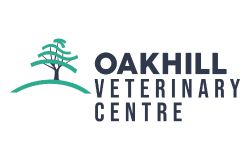THE IMPORTANCE OF VETERINARY NURSES IN THE CARE OF YOUR PET
Oakhill’s team of qualified Registered Veterinary Nurses (RVNs) play a vital role in looking after your pet during their visits to us. Just like human nursing, veterinary nursing is a skilled and highly trained profession, with the patient’s welfare firmly at its heart.
They work alongside veterinary surgeons to care for sick and injured animals, ensuring the welfare, comfort and recovery of animals that have undergone trauma, surgery, or are receiving treatment for ongoing medical conditions.
WHAT DO OUR NURSES DO?
Whether your pet is visiting Oakhill to manage an ongoing condition, for routine surgery, or requires emergency care, veterinary nurses will be providing skilled nursing care throughout. While some of this work will be behind the scenes, especially if your pet is staying as an inpatient, nursing care provides an essential role in ensuring that your pet’s well-being is monitored throughout their treatment.
Here’s just some of the things Oakhill’s RVNs are responsible for:
- Inpatient care – carrying out nursing care, while working with the veterinary surgeon in charge of the case. Like nurses in our NHS hospitals, they undertake a wide range of tasks such as administering medicine, managing wounds and monitoring intravenous fluids, as well as monitoring and taking care of the needs of the patient.
- Diagnostic tests – most laboratory tests are performed in-house by our RVNs. Once the test is complete the findings will be relayed to the vet in charge of your pet, who will interpret the results and discuss them with you. Veterinary nurses are also trained to use a variety of diagnostic imaging tools, which can be a crucial aid to the vet while diagnosing illness or injury.
- Surgical nursing and anaesthesia – RVN’s are trained to assist the veterinary surgeon both as part of the surgical team and monitor the levels of patient anaesthesia throughout the operation. This highly skilled and specialised work means they can recognise different stages of anaesthesia, along with potential problems. RVNs can also legally undertake minor surgical procedures, such as the suturing of wounds, as well as dental scaling and polishing, following assessment and removal of any damaged teeth by the vet.
- Nurse clinics – just like at your GP surgery, our nurses provide regular clinics to support you with advice about a range of topics including, moving house, keeping your senior pet happy, caring for a puppy or kitten, managing chronic conditions, as well as monitoring pets with long term health conditions such as diabetes or obesity.
QUALIFICATIONS AND REGISTRATION
Veterinary nurses are trained to a high level, to enable them to work in all aspects of the practice environment, from reception through to the operating theatre. Training to become a veterinary nurse is challenging and requires lots of dedication. They must complete at least 1,800 hours of practical, hands-on experience, alongside writing assignments and sitting theory exams. This training is usually done over a period of around three years and can be either a vocational or work-based diploma via college, or a veterinary nursing degree at university.
Once qualified, RVNs are regulated by the Royal College of Veterinary Surgeons (RCVS), which means they are professionally accountable for their conduct and must undertake continuing education, known as CPD, to maintain their status.
Their registration demonstrates to employers and to pet owners alike that they are keeping their skills up to date. Just like in human nursing, some RVNs will work in general practice, while others will take on specialised roles within referral practices in larger hospitals.
Veterinary nurses carry out technical work and are skilled in undertaking a range of diagnostic tests, medical treatments, and minor surgical procedures under direction of a veterinary surgeon. They will advise on keeping pets healthy and many provide their own nursing consultations and outpatient checks. There are also certain procedures which, by law, the vet can only delegate to RVNs. This means that the more technical areas of patient care, such as administration of some medications, and minor surgeries are only delegated to those who have the skills and knowledge to carry out the procedure safely.
British standards of veterinary nurse training and regulation are among the best in the world so you can be sure that your pet is in safe hands.
